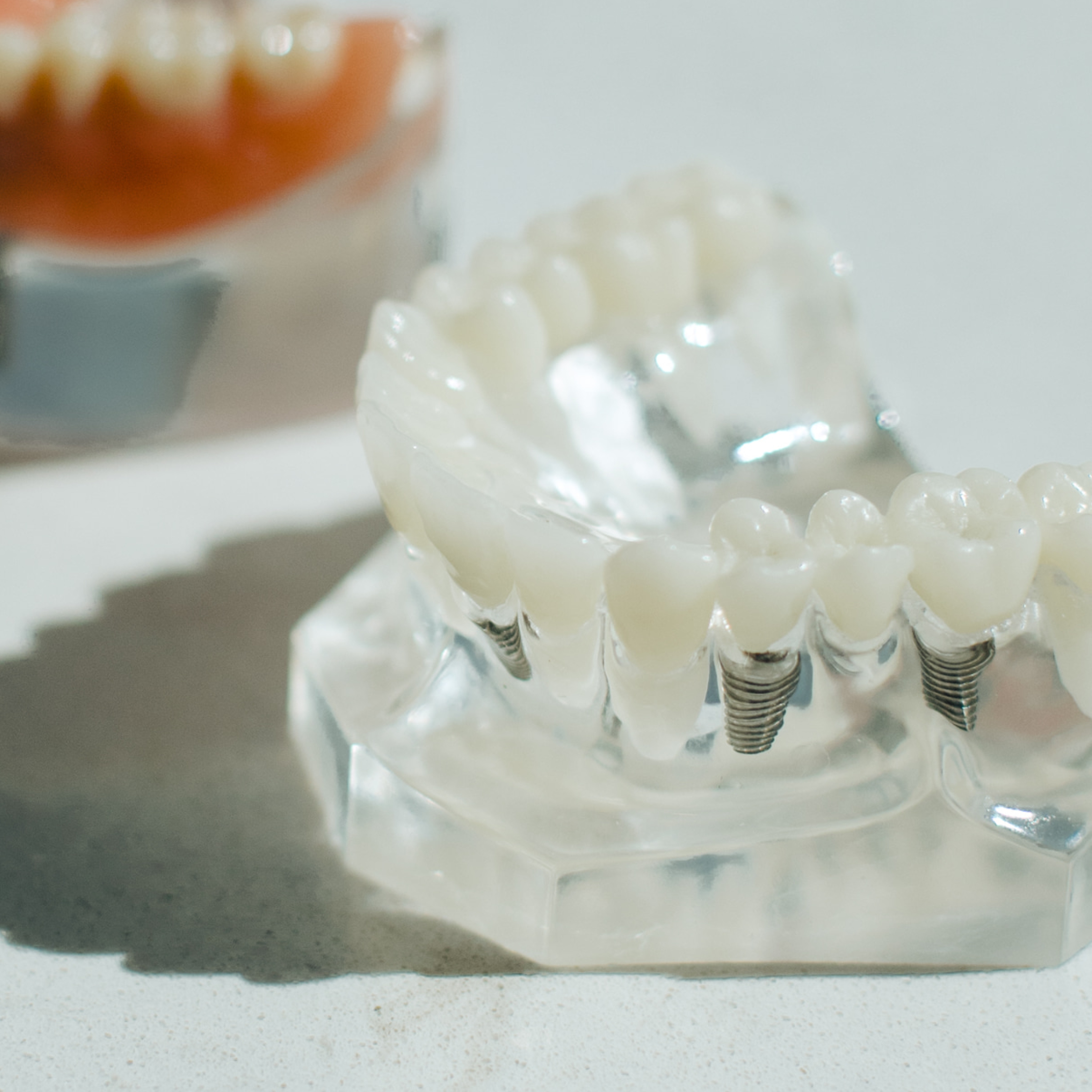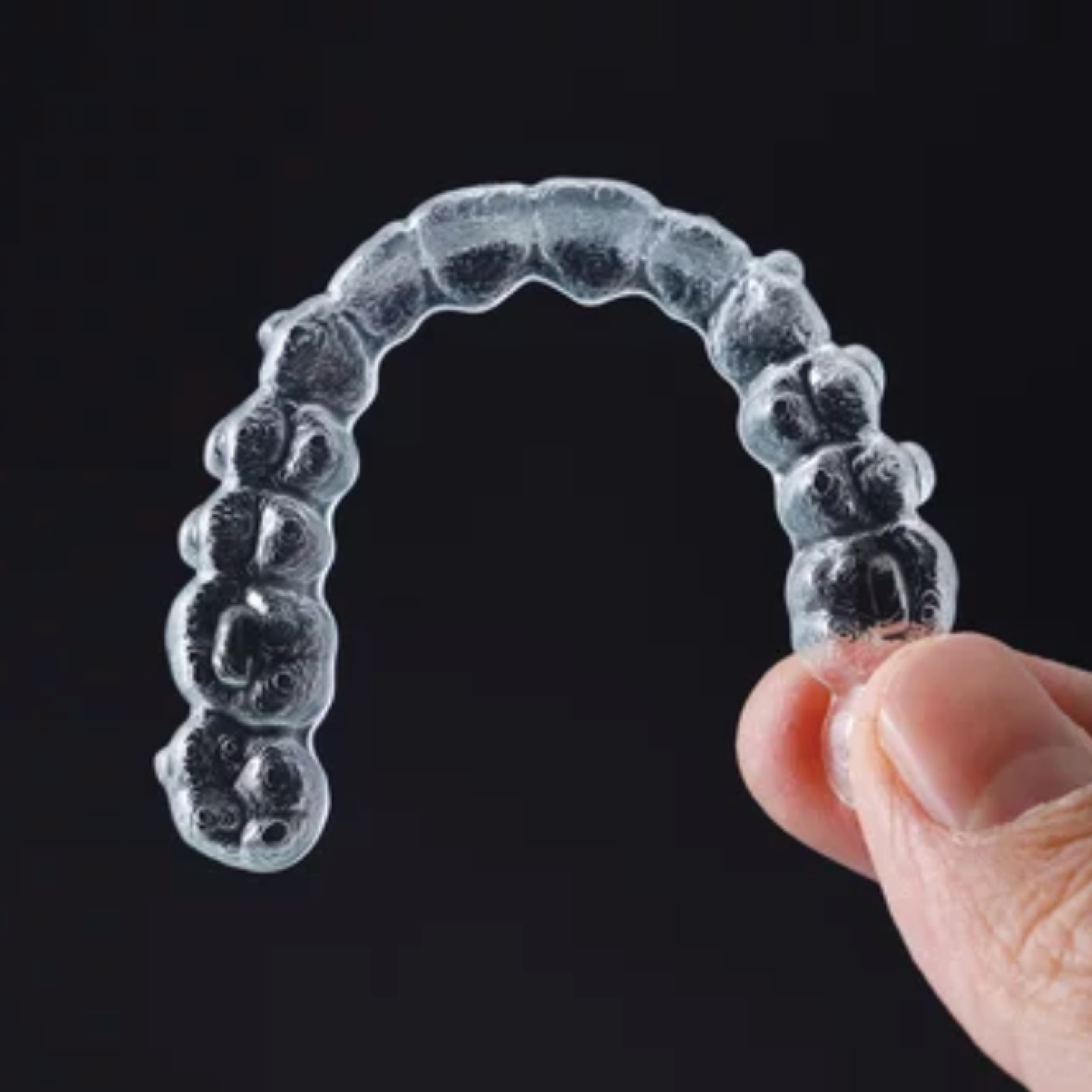Dental Bone Grafts
Oral Surgery


Dental bone grafts: restoring jaw health.


Dental bone grafting is a transformative procedure. It restores or regenerates lost jawbone due to various factors like tooth extraction, trauma or gum disease. Honce Dentistry understands the importance of a healthy jawbone—not just for aesthetics but also for long-term dental health and functionality. Here you’ll find comprehensive solutions and advanced techniques to address your specific needs.
When you require dental bone grafting
Dental bone grafting becomes necessary when the jawbone lacks the necessary quality or quantity of bone to support dental implants or maintain facial aesthetics. It’s often recommended in cases where:
- Tooth extraction has led to bone loss, compromising the stability of adjacent teeth and the overall structure of the jaw.
- Periodontal disease has caused significant bone loss, leading to gum recession and tooth mobility.
- Trauma or injury has resulted in damage to the jawbone, affecting oral function and aesthetics.
Tailored techniques for optimal results
Several methods of dental bone grafting are designed to meet the specific needs of patients and the desired outcome. Common types of grafts include:
- Dentin tooth grafts. If you require a tooth extraction, this same tooth can be chemically treated and mechanically particulated, enabling it to be placed back into the jaw as one of the most optimal bone graft materials available. It carries all of the body’s proteins that elicit excellent bone regeneration capabilities.
- Autogenous bone grafts use your own bone tissue, typically from areas such as the chin, jaw, lower leg bone or hip. These bone grafts offer excellent compatibility and promote natural bone regeneration.
- Allografts use processed and sterilized bone from a donor, offering a viable option to autogenous bone grafts. Allograft bone, or donor bone, adds volume and density to the jaw bone.
- Xenografts use bovine or porcine bone treated to remove organic components, providing a scaffold for new bone growth.
- Synthetic bone grafts consist of biocompatible materials that either stimulate new bone formation or mimic natural bone. They are ideal for situations where harvesting a patient’s own bone is not feasible.
Benefits of dental bone grafting
The many benefits to dental bone grafts include:
- Enhanced facial contours. Restored bone volume provides a foundation for implants and improves facial aesthetics.
- Improved oral function. A strong jawbone supports natural function and facilitates comfortable chewing and speaking.
- Long-term success. Adequate bone volume ensures the longevity of dental implants and prosthetics.
- Preserving oral health. Bone grafts prevent further deterioration of the jawbone, promoting long-term dental health.
Innovative solutions for optimal results
Honce Dentistry goes beyond traditional methods of bone grafting, employing advanced materials and techniques for optimal outcomes. These include:
- Ossix® bone graft material, which promotes efficient bone regeneration and facilitates implant integration
- Smart Dentin Grinder, which converts your own extracted teeth into a powerful and safe bone graft material
“It’s always such a pleasure to go to Honce Dentistry and the new office is so relaxing with a beautiful view. The staff are very genuinely kind and professional. As a client of several years I can honestly say the work they do is excellent!”
Mary – Google Review
Frequently asked questions about Dental Bone Grafts
Is dental bone grafting a painful procedure?
Our team prioritizes patient comfort and utilizes advanced techniques to minimize discomfort during dental bone grafting procedures. Most bone graft experiences typically require local anesthesia to ensure a pain-free experience.
What can I expect after a dental bone graft?
You might experience some swelling, discomfort, and bleeding following the procedure. You will be prescribed pain medication and provided specific instructions on caring for the surgical site. This will include dietary restrictions and proper cleaning techniques.
Does dental bone grafting have any risks associated with it?
Like any surgical procedure, dental bone grafting carries some inherent risks, including infection, bleeding and graft failure. However, our experienced team takes every precaution to minimize these risks and ensure successful outcomes for our patients.
What are the different types of anesthesia Honce Dentistry uses for bone grafting procedures?
The complexity of the procedure along with your individual needs will determine the type of anesthesia. Options include local anesthesia (numbs the area), sedation dentistry (induces relaxation) and nitrous oxide. Your dentist will discuss the best option for you during your consultation.
Will I need to undergo additional surgeries for bone grafting?
In some cases, multiple grafting procedures may be necessary to achieve the desired bone volume and quality. However, our goal is to minimize the need for additional surgeries whenever possible. Always providing comprehensive care that meets your unique needs and goals.
How long does a dental bone graft last?
With proper care and maintenance, a successful bone graft can last many years, providing a strong foundation for dental implants or other restorations. However, factors like oral hygiene, underlying health conditions and the type of bone graft can influence its long-term success.
What happens if my dental bone graft fails?
While uncommon, bone graft failure can occur. If you experience prolonged pain, swelling or difficulty healing, contact us immediately. We can assess the situation and determine if further intervention is needed.
Is there anything I can do to improve the success rate of my bone graft?
Absolutely! Following post-operative instructions carefully is key along with maintaining good oral hygiene and avoiding smoking. These crucial factors can significantly increase the success rate of your bone graft.




